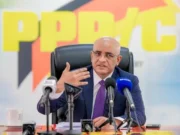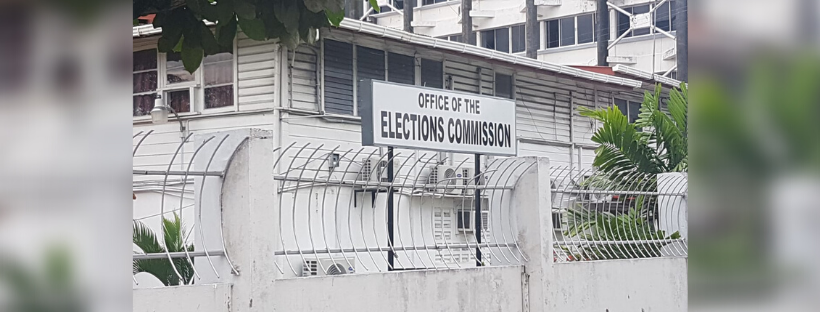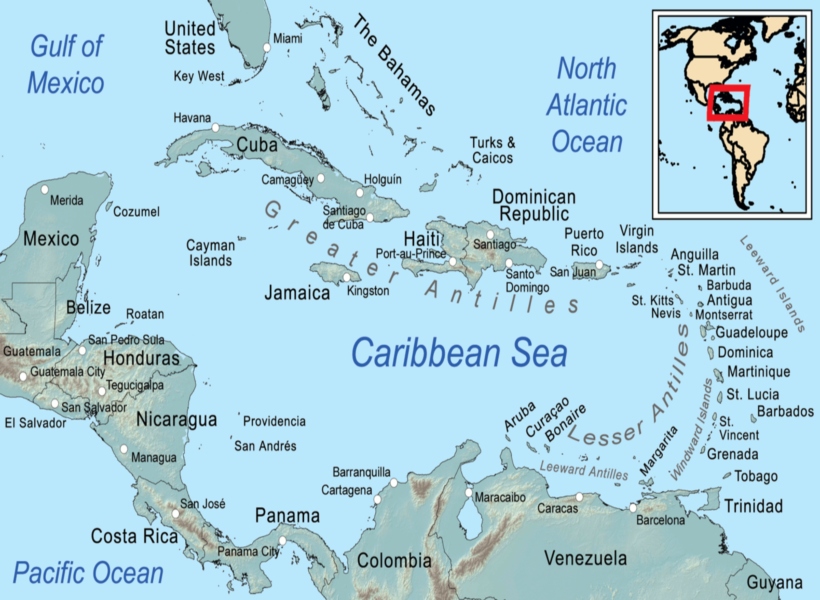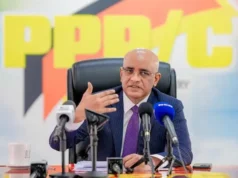Recent data from the Caribbean have shown increases in the number of migrants being smuggled into different parts of the region. To address these changing and concerning trends, the International Organization for Migration (IOM), in collaboration with the Caribbean Community Implementing Agency for Crime and Security (CARICOM IMPACS), hosted a one-of-a-kind meeting on drafting legislation to counter migrant smuggling.
The two-day meeting, held between April 26 and 27, was hosted in Port-of-Spain, Trinidad and Tobago, and was organized by IOM’s Western Hemisphere Program, through funding from the U.S. Department of State Bureau for Population, Refugees and Migration. The event brought together 25 Caribbean government officials. Representatives included officials from immigration and customs departments, and attorneys general’s offices.
IOM Regional Director for North America, Central America, and the Caribbean, Michelle Klein-Solomon, in her opening remarks, underscored the importance of hosting such a significant forum of government officials to address pressing issues on migration in the region.
However, due to technical difficulties IOM Program Support Officer, Brendan Tarnay provided further remarks on her behalf. He noted that a gathering of this magnitude shows CARICOM’s and national governments’ commitment to realising the objectives of the Global Compact for Safe, Orderly, and Regular Migration (GCM), particularly Objective 9 to strengthen the transnational response to the smuggling of migrants.
Meanwhile, Deputy Director of the International Affairs Unit at the Ministry of Foreign Affairs, Richard Lynch echoed the importance of this meeting in achieving the objectives of the GCM. He explained that counter-smuggling is a diverse issue that requires multi-agency collaboration to address, which Trinidad and Tobago has implemented to advance its efforts.
According to Deputy Director, further policy development, strategic planning, and the “implementation imperative” have emerged as the most effective means for national security leadership and evaluating matters of migrant smuggling.
The meeting included a review of a model counter-smuggling of migrants’ legislation that was developed in 2021, in addition to agreeing on the next steps towards the advancing legislation at a national level, its operationalization and the development of standard operating procedures. Discussions were facilitated by several skilled migration specialists from within and outside the region, including IOM legal.
Furthermore, countries were invited to share their experiences, challenges, and good practices in the counter-smuggling of migrants. In-depth discussions also highlighted the linkages between the smuggling of migrants and related crimes of human, drug and arms trafficking. Subsequently, participants paid special attention to compliance with the Protocol Against Smuggling of Migrants by Land, Sea, and Air, which has been signed by all Caribbean States except for Saint Lucia. Attention to compliance was also given to the GCM and United Nations Sustainable Development Goal 10.7.













